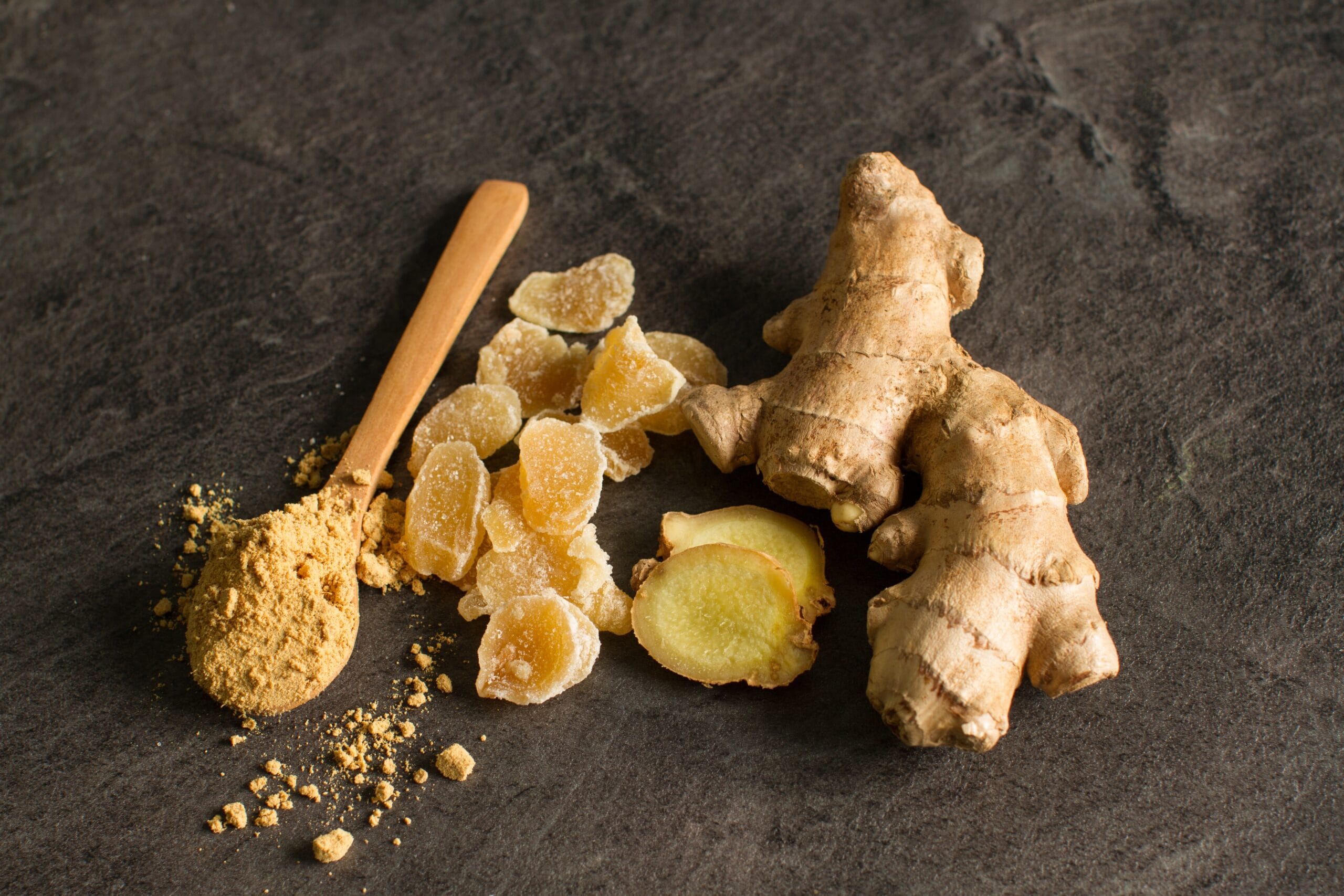Ginger is more than just a flavorful spice; it is a powerful natural remedy with numerous health benefits that can enhance your overall well-being. This article explores ginger’s role in supporting the immune system, reducing inflammation, and aiding digestion, while also providing practical tips on how to incorporate it into your daily diet. By understanding the various advantages of ginger, you can make informed choices to improve your health and address common issues such as digestive discomfort and inflammation.
In this article you will find:
Health Benefits of Ginger for Immune Support
Ginger, a popular spice known for its culinary versatility, has gained recognition not just for its flavor but also for its remarkable health benefits, particularly in supporting the immune system. With the growing emphasis on natural remedies, ginger has emerged as a potent ally in enhancing immune function and protecting the body against infections.
Antioxidant Properties of Ginger
One of the key reasons ginger is celebrated for its immune-boosting effects is its rich content of antioxidants. These compounds play a vital role in combating oxidative stress, which can weaken the immune system. By neutralizing free radicals, ginger helps to maintain cellular integrity and promotes overall health. Research suggests that regular consumption of ginger may enhance the body’s ability to fight off infections and reduce the risk of chronic diseases. For more in-depth insights into the antioxidant properties of ginger, you can refer to this study by NCBI.
Anti-Inflammatory Effects
Ginger is also renowned for its anti-inflammatory properties, which are crucial for a well-functioning immune system. Chronic inflammation can lead to various health issues, including autoimmune disorders and increased susceptibility to infections. The bioactive compounds in ginger, such as gingerol, have been shown to inhibit the production of pro-inflammatory cytokines. This modulation of the inflammatory response not only supports immune health but also contributes to overall wellness.
Enhancing Respiratory Health
In addition to its general immune-boosting properties, ginger has specific benefits for respiratory health. It can help alleviate symptoms of respiratory infections by acting as a natural expectorant, promoting the expulsion of mucus and relieving congestion. This makes ginger particularly beneficial during cold and flu seasons, providing a natural remedy to ease discomfort and enhance recovery.
Supporting Digestive Health
A healthy digestive system is closely linked to a robust immune response. Ginger aids digestion by stimulating the production of digestive enzymes and promoting gut motility. A well-functioning digestive system ensures that nutrients are effectively absorbed, which is essential for maintaining immune health. Incorporating ginger into your diet can therefore serve a dual purpose: enhancing digestion while simultaneously boosting immunity.
How to Incorporate Ginger into Your Diet
Adding ginger to your daily routine can be simple and enjoyable. Here are some effective ways to include this powerful root in your diet:
- Fresh Ginger Tea: Brew fresh ginger slices in hot water for a soothing tea that can be enjoyed daily.
- Smoothies: Add ginger to your morning smoothie for an extra kick of flavor and health benefits.
- Cooking: Use ginger in stir-fries, soups, and marinades to enhance the taste and nutritional value of your meals.
- Supplements: Consider ginger supplements if you find it challenging to incorporate enough ginger into your diet.
In conclusion, ginger is not just a spice; it is a powerful tool for enhancing immune support. With its antioxidant and anti-inflammatory properties, along with its ability to support digestive and respiratory health, ginger offers a holistic approach to maintaining wellness. As we continue to seek natural ways to bolster our health, ginger stands out as a remarkable ally in our quest for a stronger immune system.
Ginger’s Role in Reducing Inflammation
Ginger has long been revered not only for its culinary uses but also for its impressive health benefits, particularly its ability to reduce inflammation. Inflammation is a natural response by the body to injury or infection, but chronic inflammation can lead to various health issues, including arthritis, heart disease, and even cancer. Understanding how ginger contributes to inflammation reduction can empower individuals to incorporate this potent root into their diets for better health.
Active Compounds in Ginger
The anti-inflammatory effects of ginger are largely attributed to its active compounds, particularly gingerol, which is the primary bioactive component. Gingerol has been shown to have significant anti-inflammatory and antioxidant properties, making it effective in combating oxidative stress and inflammation at the cellular level. Research indicates that gingerol can inhibit the production of inflammatory markers, thereby reducing the inflammatory response in the body. For more detailed insights into the compounds found in ginger, you can explore this comprehensive study from NCBI.
Clinical Evidence Supporting Ginger’s Anti-Inflammatory Effects
Numerous studies have highlighted ginger’s potential in reducing inflammation. For instance, a study published in the Journal of Pain found that ginger extract significantly reduced muscle pain and soreness following exercise. Another clinical trial indicated that ginger supplementation led to a notable decrease in markers of inflammation in patients with osteoarthritis. These findings suggest that ginger may be a valuable natural remedy for managing inflammatory conditions.
Ginger in Traditional Medicine
In many cultures, ginger has been used for centuries as a traditional remedy for various ailments, including inflammation. Traditional Chinese Medicine (TCM) and Ayurvedic practices often incorporate ginger to treat conditions characterized by inflammation. This historical context not only underscores ginger’s effectiveness but also highlights its role in holistic health practices. By integrating ginger into daily routines, individuals can harness its anti-inflammatory properties while embracing natural healing traditions.
Incorporating Ginger for Inflammation Management
To reap the anti-inflammatory benefits of ginger, consider the following methods of incorporation into your diet:
- Fresh Ginger Tea: Brew fresh ginger slices in boiling water and enjoy as a soothing tea.
- Ginger in Cooking: Add grated or minced ginger to stir-fries, soups, and marinades to enhance flavor and health benefits.
- Ginger Supplements: For those who find it challenging to consume enough ginger, high-quality ginger supplements are available.
- Ginger Smoothies: Blend ginger with fruits and vegetables for a nutritious smoothie that packs an anti-inflammatory punch.
In conclusion, ginger stands out as a powerful natural anti-inflammatory agent. Its active compounds, particularly gingerol, play a crucial role in mitigating inflammation and promoting overall health. By incorporating ginger into daily diets, individuals can take proactive steps towards reducing inflammation and enhancing their well-being.
Ginger as a Natural Digestive Aid
Ginger has been cherished for centuries, not only for its unique flavor but also for its remarkable ability to support digestive health. As a natural digestive aid, ginger offers a variety of benefits that can help alleviate common gastrointestinal issues, making it a staple in many traditional medicine practices around the world.
Mechanisms of Action in Digestion
The effectiveness of ginger as a digestive aid can be attributed to its active compounds, including gingerol and shogaol. These compounds stimulate the production of digestive enzymes, which are crucial for breaking down food and absorbing nutrients. Additionally, ginger enhances gut motility, ensuring that food moves efficiently through the digestive tract. This can help prevent issues such as bloating, gas, and constipation.
Relief from Nausea and Indigestion
Ginger is particularly well-known for its ability to relieve nausea, making it an excellent remedy for morning sickness during pregnancy, motion sickness, and nausea induced by chemotherapy. Research has shown that ginger can significantly reduce the severity and duration of nausea. A systematic review published in the Journal of Alternative and Complementary Medicine highlighted ginger’s effectiveness in managing nausea, providing compelling evidence for its use as a natural remedy.
Anti-inflammatory Properties Supporting Digestive Health
Chronic inflammation in the gastrointestinal tract can lead to various digestive disorders, including irritable bowel syndrome (IBS) and inflammatory bowel disease (IBD). Ginger’s anti-inflammatory properties can help soothe the gut lining and reduce inflammation, contributing to overall digestive health. By incorporating ginger into your diet, you may experience relief from symptoms associated with these conditions.
Incorporating Ginger into Your Diet for Digestive Benefits
Adding ginger to your daily routine can be both simple and enjoyable. Here are some effective ways to incorporate ginger into your diet:
- Ginger Tea: Brew fresh ginger slices in hot water to create a soothing tea that can be enjoyed after meals to aid digestion.
- Ginger-Infused Foods: Incorporate ginger into stir-fries, soups, and marinades to enhance flavor while reaping digestive benefits.
- Smoothies: Blend ginger into your morning smoothie for a refreshing and digestive-friendly boost.
- Ginger Supplements: For those who prefer a more concentrated form, ginger supplements are available and can be effective for digestive support.
In summary, ginger serves as a powerful natural digestive aid, offering a range of benefits from enhancing nutrient absorption to alleviating nausea. Its unique compounds not only promote gut health but also provide relief from common digestive issues. By incorporating ginger into your diet, you can take proactive steps toward better digestive health.
Incorporating Ginger into Your Daily Diet
Ginger is a versatile root that not only adds a unique flavor to dishes but also offers numerous health benefits. Incorporating ginger into your daily diet can be simple and enjoyable, enhancing both your culinary experiences and your overall well-being. Here are various ways to seamlessly integrate ginger into your meals and snacks.
Fresh Ginger: A Culinary Staple
Using fresh ginger is one of the most effective ways to harness its health benefits. The root can be easily grated, sliced, or minced and added to a variety of dishes. Here are some popular methods to use fresh ginger:
- Stir-Fries: Add minced ginger to vegetable or meat stir-fries for a zesty flavor and added health benefits.
- Soups and Broths: Incorporate ginger into soups and broths to provide warmth and depth of flavor, particularly in Asian-inspired recipes.
- Salads: Grate fresh ginger into salad dressings for a spicy kick that complements leafy greens.
Ginger Tea: A Soothing Beverage
Ginger tea is a popular way to enjoy the health benefits of ginger. It is easy to prepare and can be consumed at any time of the day. To make ginger tea:
- Boil water and add freshly sliced ginger.
- Let it steep for about 10 minutes.
- Strain and enjoy, optionally adding honey or lemon for added flavor.
This soothing beverage can help with digestion and provide relief from nausea, making it a great choice for those feeling under the weather.
Ginger in Smoothies and Juices
Incorporating ginger into smoothies and juices is another delicious way to enjoy its benefits. A small piece of fresh ginger can enhance the flavor of fruit smoothies while providing a health boost. Consider these combinations:
- Green Smoothie: Blend spinach, banana, a small piece of ginger, and almond milk for a refreshing drink.
- Fruit Juice: Add ginger to your favorite fruit juice for an extra zing, particularly in citrus juices.
Ginger Supplements: Convenient and Effective
For those who may not enjoy the taste of ginger or find it difficult to incorporate into meals, ginger supplements are a convenient alternative. Available in various forms such as capsules, powders, and extracts, these supplements can provide the health benefits of ginger without the need for cooking. When choosing supplements, look for high-quality products from reputable brands to ensure efficacy.
Cooking with Ground Ginger
Ground ginger is a pantry staple that can be used in both sweet and savory dishes. Here are some ideas for incorporating ground ginger:
- Baking: Use ground ginger in recipes for gingerbread, cookies, and cakes to add warmth and spice.
- Curry Dishes: Add ground ginger to curry powders and spice blends for enhanced flavor and health benefits.
Ginger-Infused Oils and Sauces
Creating ginger-infused oils or sauces can be a great way to add flavor to your dishes. Simply infuse olive oil with fresh ginger slices or create a ginger sauce to drizzle over grilled meats or vegetables. This not only enhances the taste but also provides the health benefits of ginger in every bite.
Incorporating ginger into your daily diet is not only beneficial for your health but also enhances the flavors of your meals. With its versatility, you can enjoy ginger in a variety of forms, making it easy to reap its numerous health benefits.
Ginger is a powerful natural remedy known for its immune-boosting, anti-inflammatory, and digestive health benefits. Its rich antioxidant content helps combat oxidative stress, while compounds like gingerol reduce inflammation and support respiratory health. Regular consumption of ginger can enhance nutrient absorption and alleviate symptoms of nausea and digestive discomfort.
To incorporate ginger into your daily diet, consider using fresh ginger in stir-fries, soups, and salads, or enjoy it as a soothing tea. Ginger can also be added to smoothies, baked goods, and sauces for added flavor and health benefits. For those who prefer convenience, high-quality ginger supplements are available. Embracing ginger in various forms can significantly contribute to overall wellness.




